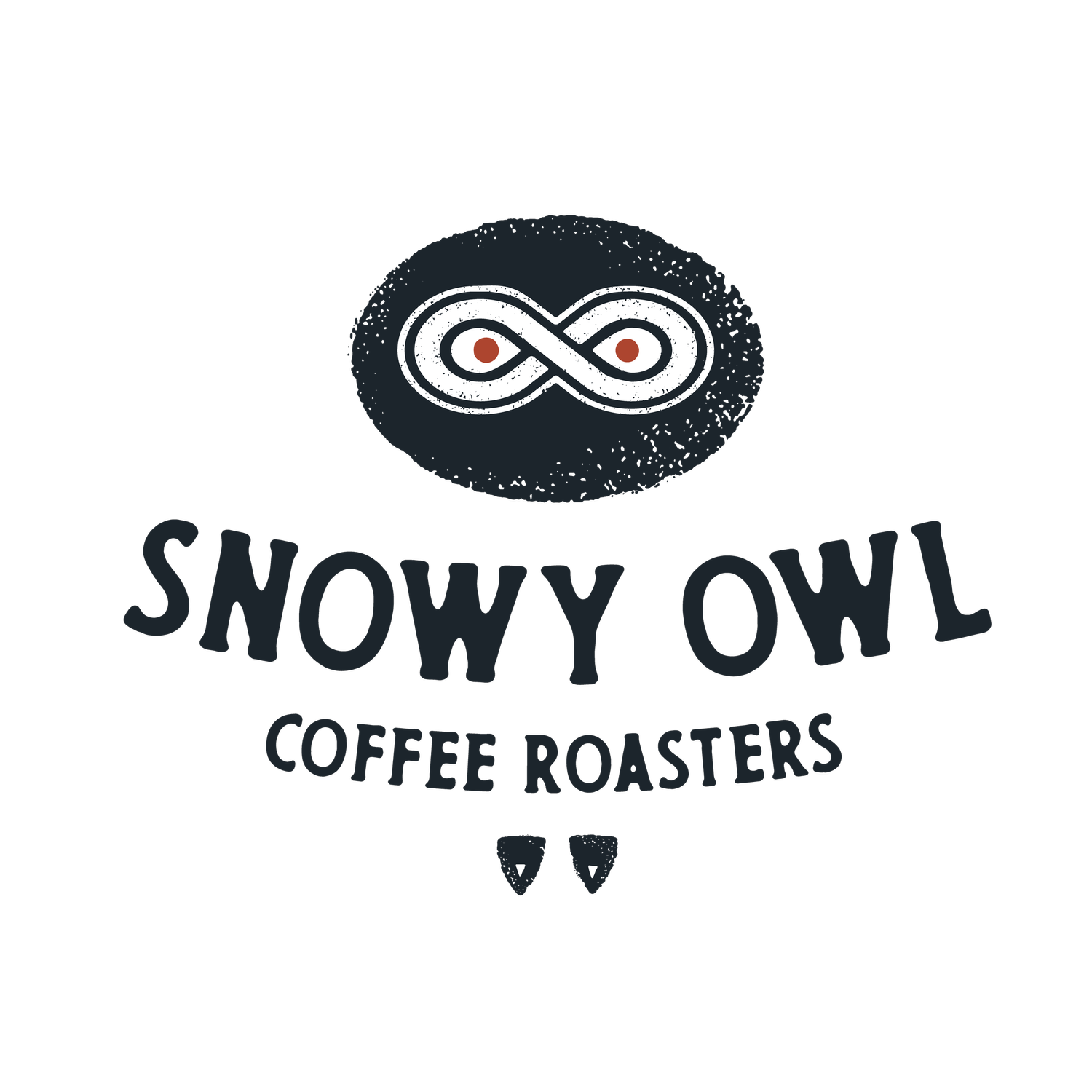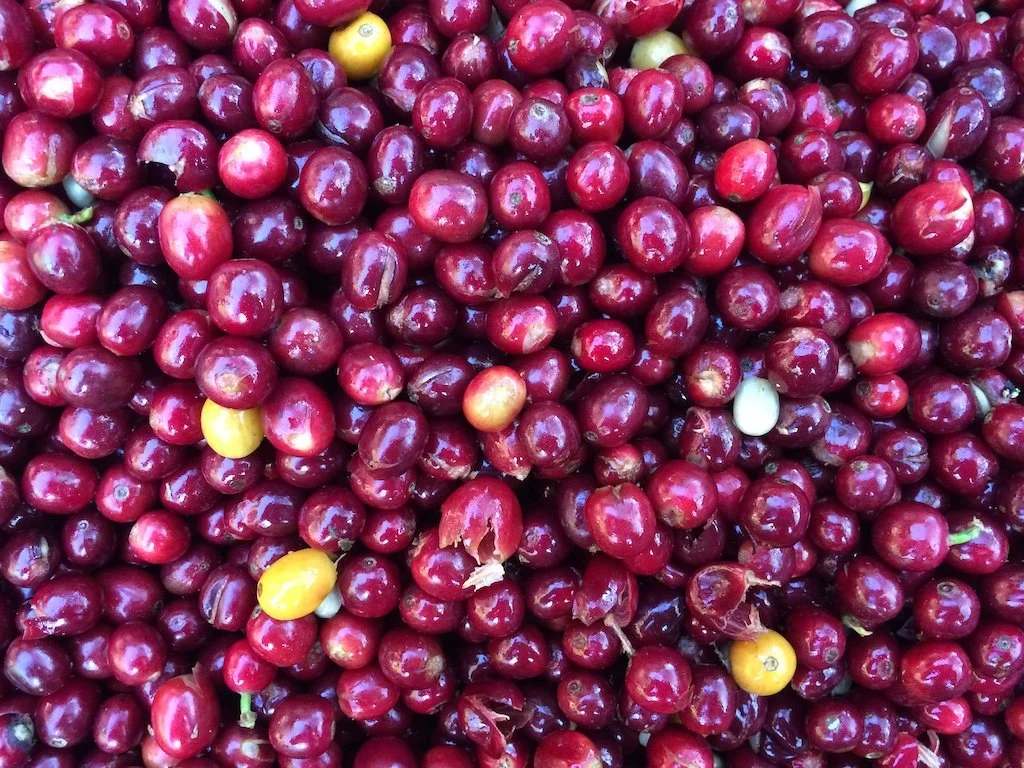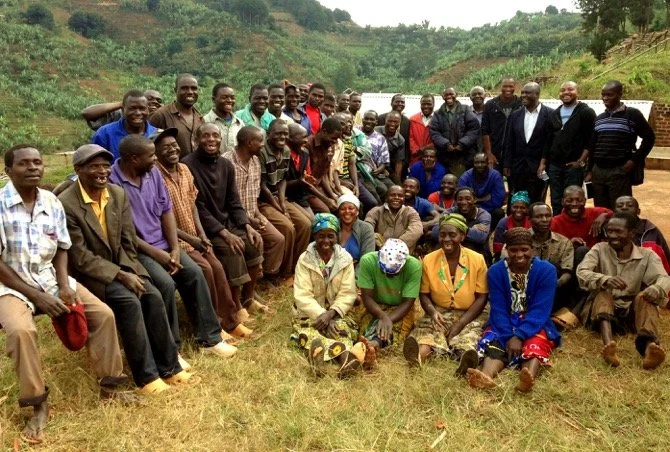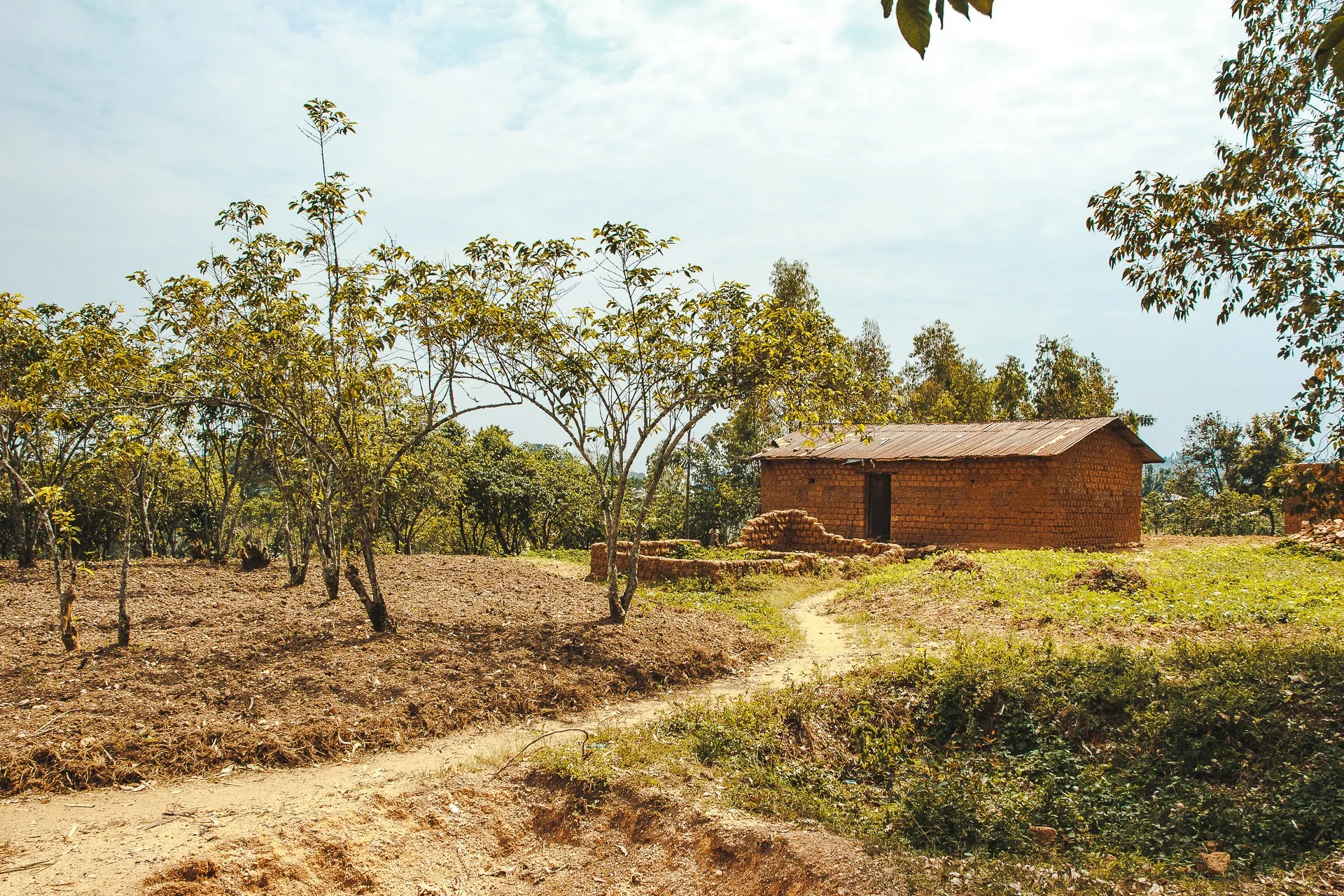We Are Raising Our Coffee Prices (but it’s not for reasons you may think)
We are raising our coffee prices, but it’s not because of current inflation or because of higher commodity coffee pricing. We are raising our prices because we need to pay our specialty coffee partners more and nurture our current channels to ensure we can continue to purchase high quality coffee for decades to come.
It’s 2021, and unless you are avoiding all media – and we wouldn’t blame you for this – you have surely heard about inflation in our economy. The pandemic shut down production and logistical operations worldwide leading to many bottlenecks and roadblocks as economies have staggered back open. A spike in American consumer demand as a result of government stimulus and a desire to return to normalcy has led to inflationary levels that many of us have never experienced in our adult lives. If there is a silver lining to this mayhem, it’s that most of us in the developed world should now better understand just how goods from abroad actually get delivered to our front doorsteps. It’s not actually Amazon magic; many human hands are still primarily involved in the production and trade of goods. Machines and AI have yet to supplant everything in our global economy. So when large populations must quarantine because of a deadly virus or decide not to return to work for whatever reason, the previously seamless movement of billions of products gets disrupted. Never has there ever been a greater case for buying local.
Commodity coffee prices soared this past summer when Brazil experienced a few back-to-back cold snaps, preceded by a drought. As we outlined in our previous post about fair trade and organic certifications, the number one most influential factor in commodity coffee pricing is the weather in Brazil. Moreover, fertilizer prices have soared as have freight associated with supplies used in the production process. With a predicted drop in the supply of global coffee because of this weather, investors in the futures market have raised the price of coffee. Higher priced coffee + supply chain disruptions = coffee purveyors charging more for coffee. In fact, the price of coffee has grown by an estimated 53%. Check out this read if you want more details.
But guess what? Higher coffee prices can be a good thing. The historically low – abysmally low - coffee prices that we have witnessed in the past 5 years have led to many growers abandoning their coffee fields and switching their crops to other commodities. Younger generations of coffee growing families have fled the sector instead opting for professions and opportunities that avoid the instability associated with a price that is out of their control and weather patterns that are increasingly placing the viability of coffee production at risk.
We are raising our coffee prices, but it’s not because of current inflation or because of higher commodity coffee pricing. We are raising our prices because we need to pay our specialty coffee partners more and nurture our current channels to ensure we can continue to purchase high quality coffee for decades to come. Increasing our coffee prices aims to tackle some of the challenges associated with scaled supply chain economics that has never benefited the producer on the ground. We feel strongly that working with our community here via education, transparency, and open dialogue, we can leverage our position to invest more in our partners overseas. In paying our partners more, they are afforded the opportunity to invest more in themselves, their families, and their farms. They, and the younger generations that will follow, will have an incentive to continue to grow coffee, to employ best practices associated with the best tasting specialty coffee, to take risks, to purchase what might be necessary to stave off climate-related catastrophes, and to continue to partner with Snowy Owl Coffee because we will be a source of stability in an inherently unstable and risky trade.
Historic C and Fair Trade Coffee Prices: 2015-2021
Source: MacroTrends
Current prices paid for Snowy Owl Coffee blend inputs (Costa Rica, Colombia, Congo) and single origin coffees.
Our business sits on the balance between two very different markets- green coffee and roasted coffee. We serve a customer that can afford a $3.50 cup of coffee and a grower who is lucky if he or she receives $3.50 per lb of green coffee grown, picked, processed, and bagged. As a consumer we might not think about global coffee production when we purchase a cappuccino or a bottomless cup of coffee at a diner. It might even be hard to conceptualize what are the questions we should be asking: Should we be buying organic? Fair Trade? Bird-friendly? Do I even have time to think about this? Coffee is complex. But helping people is a simple decision. And we know that in raising our prices, our ability to keep paying more for delicious coffee – and helping our partners – is solidified.
Sustainability has become a buzz word in the coffee industry, and we have a lot of work to do on all fronts; social, economic, and environmental. But economic feasibility for specialty coffee producers is attainable, and that begins with specialty coffee roasters, like Snowy Owl Coffee, committing to pay even more for our green coffee and demonstrating to our partners on the ground that we are here with them for the long-haul. In an era of growing awareness of just how many human hands overseas provide us with the goods we enjoy every day, we publicly declare our commitment to paying more, and dialoguing with our customers about why we want to pay more, irrespective of the economic forces that may play out over the next 20 years.
Beyond Certifications: Why Snowy Owl Coffee Roasters does not prioritize Organic and Fair-Trade certifications
One of the most common questions we receive has to do with the organic and fair-trade certifications of our coffee products. This is a topic that could be debated for days. While we see a role for certifications in the coffee industry, we want to take an opportunity to explain why since our inception, we made the mindful decision not to prioritize these certifications in our coffee purchases.
One of the most common questions we receive has to do with the organic and fair-trade certifications of our coffee products. This is a topic that could be debated for days. While we see a role for certifications in the coffee industry, we want to take an opportunity to explain why since our inception, we made the mindful decision not to prioritize these certifications in our coffee purchases.
How Coffee is Priced: Commodity vs Specialty
As we have previously explained, producers of coffee are among the poorest in the world. The commodity price of coffee – also referred to as the C price - is set each day on the future’s market in the United States. As with most commodities and products, price is a function of supply and demand. However, unlike most products, in which the demand and supply are calculated in real time, C coffee prices are a function of what traders’ estimate will be the supply and demand in the future. It is often said that the most important indicator of the C market price is the weather in Brazil. This is because Brazil is the top producer of all coffee worldwide: the harvest in Brazil accounts for approximately one-third of all global coffee produced annually. Therefore, while demand for coffee may remain the same or slightly increase, the supply of coffee – which largely depends on the climate and weather patterns – will always change from year to year. This past summer, Brazil experienced a drought, followed up a cold snap, that has sent the C price of coffee to levels not seen in almost a decade. In short, producers selling on the C market have no control over the price they will receive, leaving them vulnerable to forces completely out of their control.
Producers who have shifted to selling specialty coffee, on the other hand, are receiving prices that correspond to the quality of coffee. Specialty Coffee’s new definition is below:
As coffee is “graded,” producers selling coffee that scores higher on the grading scale will receive premiums often equally to 100-200% of the C price of coffee. It’s no coincidence that the best tasting coffee has gone through a meticulous process that accounts for the health and well-being of the growing environment and the hands that have touched the coffee.
Fair Trade Coffee
The fair-trade movement began several decades ago but coalesced into its modern form at the turn of the century. Fair Trade USA, formerly Transfair, the largest fair-trade certifier in the US, opened its headquarters in 1998 and began certifying products in 1999. Fair Trade USA owns the label to the most well-known certification process. You will see this label on products from coffee to home décor.
According to Fair Trade USA, producers in their program are provided a minimum price of $1.40 per pound or 20 cents per pound more than the C price. During the years between 2016 and 2020, when the price of coffee hovered around $1/lb, this premium undoubtedly made a difference.
Criticism of Fair Trade USA / Transfair is everywhere and, in our opinion, are well-laid out in this article. The fair-trade premium does not incentivize quality production. Since it is based off the C market, farmers will get a fixed price for a sack of coffee regardless of the attention they may have paid to the quality during the growing, harvesting, and processing periods. As such, Fair Trade coffee is often low-grade.
Most importantly, there is little empirical proof that the fair trade movement has actually lifted the most vulnerable out of poverty. Coffee growers often rely on migrant workers to pick coffee cherries. And the fair-trade model does not account for these workers. Often, migrant workers are illegal and paid well below the minimum wage.
Organic Certification
The problems with organic certification are quite different to the issues outlined with fair-trade. Namely, organic certification costs a LOT and often results in lower yields, a risk that most small-hold farmers simply cannot take. Research depicts how certifications may trap producers in single, low-priced export cash crops, hindering agricultural diversification. Even further, converting a conventional farm to organic farming can take anywhere from 5 to 7 years, well in advance of when a farmer might know the price to be received or if the investment will pay off. Organic certification standards vary from country to country, so local inspectors must have recognition from all buying nations (i.e. US, Japan, S. Korea, Europe, etc.), which is expensive and must ultimately be incurred by the farm itself. Taken together, organic certification is reserved for larger producers with greater resources and an ability to take an enormous risk.
And as with fair trade certified coffee, organic certification has nothing to do with the quality of the coffee. There is plenty of low-grade coffee grown organically and subject to the organic premium, and there is plenty of non-certified coffee that is high grade, delicious, and grown according to environmental best practices. The latter is what we seek without requiring the expensive burden of the organic certification. While we have purchased and sold certified organic coffees many times in the past 6 years since opening, our goal is always to serve you the best tasting coffee that is ethically sourced and produced with all pillars of sustainability considered. Our producer partners are often employing organic practices. But some may use a synthetic fertilizer or fungal killer for the sake of salvaging an entire swath of their output. Granting our partners permission to take care of their land and maintain their livelihoods in a manner that is flexible and in their best interest is a pillar we hold dearly.
Final thoughts
The average price Snowy Owl Coffee roasters paid to our partners in 2021 is $3.52. This is a holistic average, including all our blend inputs and single origin lots. Blend inputs are typically the cheaper coffee that is blended together to create desired flavor profiles while masking some of the undesired flavors. Single origin coffees are priced higher because they are perfect as is. We feel that at the heart of every successful business is trust. By explicitly partnering with organizations that we trust, we can better effectuate equity in the supply chain. Organizations who prioritize the quality of the coffee, the sustainability and viability of the land, and the well-being of all growers and laborers on a farm are partners we seek to work with. Examples of partners whose values we feel are entirely in alignment with our own but are not necessarily certified include: JNP Coffee, Mighty Peace Coffee, Yego Coffee, Ally Coffee, and Red Fox Coffee.
While certifications may serve a purpose – namely, raising awareness of some of the key issues facing our coffee-growing communities and environment – we see them as unnecessary, burdensome, and sometimes even disingenuous. We will continue our quest to purchase the best tasting, sustainably produced coffee while ensuring that each hands that has touched this coffee is paid a living wage.












